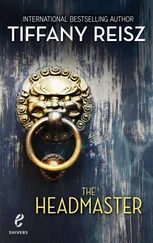There was no knocker or bell. He rapped his knuckles on the low steel door. The only reply was the rasp of cicadas. He tried to shift it. The heat of the corrugated metal stung his palms, and the door rattled but did not move—it was fastened from within. His shouts were answered by the bamboo chattering in the slight breeze. Standing in the sliver of shade provided by the short overhang of the roof, leaned against the prickly hot blocks, Percival scrutinized the scrap of paper. This must be the place. Through the bamboo, he could see the shape of his car parked near the pavilion. It glowed like a smooth, bright stone. Untended graves were being swallowed by the earth and vegetation. Had the nearby village been emptied during the partition? When General Giap’s 1954 victory over the French army at Dien Bien Phu had led to the division between north and south, people were swept in both directions, as jarring a rearrangement of the country as the military victory itself. Many had thought their dislocation temporary, that they would be home in a year, once the promised national election took place. Now, thought Percival, enough time had passed that small children who had been relocated might not remember the villages from which they came. Travel between north and south was impossible, now that they were at war. That must be the reason for the overgrown tombs. Why else would the dead have been so neglected? A strange place for a hut, he thought. Bad luck to build anything so close to a graveyard. Somewhere nearby, a stream gurgled, hidden in the bamboo. He heard the clanking of some inner latch undone, a scraping noise behind him, and then the steel door was dragged open. From inside, a voice invited him to enter.
The shack was stifling. A thick smell of tamped earth, a distinct odour of urine, and another scent mingled in, which Percival couldn’t quite place. Percival thought of the inside of a crypt, and he told himself to force down his rising fear. No lamp or window. A stingy rectangle of light entered from the door. At first, Percival saw nothing else. He advanced into the darkness, stumbled and fell to his hands and knees, a sudden panic, and stood up again. The ground was uneven.
“You are Mak’s friend?” said Percival.
“What is friendship, in these difficult times?” said the voice who had called him in. “You are Headmaster Chen, I suppose.” Percival could barely see the man. He was just a shift in the gloom, a voice, now a sing-song lilt that said, “Chen Pie Sou, Percival Chen, Headmaster Chen. These are all you?”
Percival tried to muster cool defiance but the constriction of his voice betrayed him. “Who are you?”
“Don’t worry about that. You have enough to worry about, yes?”
“I hope I have found the person who can help.”
“You must think so if you came to meet me. Or, you simply have no alternative.”
As Percival’s eyes adjusted, he began to see dark shapes within the shadows—suggesting storage crates, a rough bench, an oil drum, and the dark outline of a man pacing. A stocky frame, a restless way of moving and speaking. He could navigate this shack with ease, Percival realized, for he knew where everything was. Think of the mah-jong table, Percival told himself. When the odds delivered by the tiles weighed heavily against him, he knew to draw his opponent out, gain some feel for the situation, and be attentive for any small advantage. He would hold his words and wait for a clue. He would not be the next to speak. The silence grew, filled the room. He would win. Force the man to give away the next word.
The man stopped and stood directly before Percival. His breath stank of betel, his voice was flat. “I hope you did not come here to play the silence game. I know every game—better than you.”
“My son played a prank. That’s all.” Percival couldn’t keep his words from tumbling out, from sounding like an apology.
“A political gesture by a dissident.”
“Ridiculous. Arrested for a childish joke.”
“A protest.”
“The boy has no politics.”
“Everyone does. Or perhaps better to say, everyone’s actions have political meaning, whether or not they have political intentions.”
“A small misunderstanding.”
“Some acquire their politics by accident,” said the man.
“That’s right, it’s not his fault.”
“Or for some frivolous reason, perhaps to impress a father.” He let the words settle. Percival realized that the man already had the upper hand—knowledge—while Percival had nothing, no leverage. “In Saigon, it is always politics somehow. But what shall we talk about today—the reasons for your son’s arrest, or the prospects for his future? It’s amusing, but useless that you try to defend your son’s actions to me. It’s irrelevant, don’t you agree? You are afraid, and not thinking clearly.”
Percival hated having been read, and then the insult of it being displayed. “I will do what is needed to address this problem.” Percival was aware of the man circling him.
“You will.” The man nudged Percival lightly. Just to see what would happen? “I am a simple man,” he said. “Are you?”
“What do you mean?”
He pushed Percival hard, nearly knocked him over, set his heart pounding. “Since I love simplicity, I think the best approach to any particular situation is to know exactly what the issues are. I dislike ambiguity. Do you share my simple view?”
“If that is best,” said Percival, fists clenched.
“It is. Today, the issue is your son.”
“Yes.”
“Who does not wish to learn Vietnamese and has been arrested for his political theatre.”
“But my son was born here. He speaks Vietnamese better than I do,” said Percival. Why was he once again justifying? Because the man in the shadows was in control.
“True. He speaks like a native Vietnamese,” said the man. “Your own use of our language is clumsy. Like a child’s.”
“Dai Jai is a child.” Had this man seen Dai Jai? How else could he know the boy spoke well? Was the boy alright? Had he been given enough to eat? Did he still have his lucky amulet? But Percival did not ask. He did not wish to reveal anything more of his desperation.
The man continued. “Since you are not comfortable with the language of my country, we can speak in French, or English, as you prefer, Headmaster. You Chinese look down at us, but we are more flexible people than you.”
Percival said in Vietnamese, “Children get silly ideas. How can I remedy the situation?” He wondered what the price would be—a thousand American dollars, or two thousand perhaps. He would bargain. Even a thousand would be a fortune for a rough man like this, he thought. Perhaps he could be persuaded to accept piastres.
“Boys get their ideas from their parents,” said the man in Vietnamese.
“I am a simple teacher.”
“Don’t embarrass us both. You say that Dai Jai’s demonstration of loyalty to China was a youthful indiscretion. Next, you will tell me that he plans to join the South Vietnamese Army, unlike so many Chinese boys whose fathers send them to Australia or Canada before they can be drafted. Go on, spin some fanciful story, but before you do, should I tell you something about my practical nature?”
“Please.”
“I’m not concerned with your politics.”
“Fine.”
“Yes. It is.”
On the road outside, Percival heard a truck gear down as it prepared to climb the small hill towards the graveyard. It was the sound of grinding, mechanical determination.
“Ambiguity is worthless,” the man continued. “For instance, Mak must have told you that Dai Jai is at the National Police Headquarters? Yes. But what does this mean, exactly? Is he being held in the section for criminals, or the section for suspected communists—the political section? Do you know?”
Читать дальше












